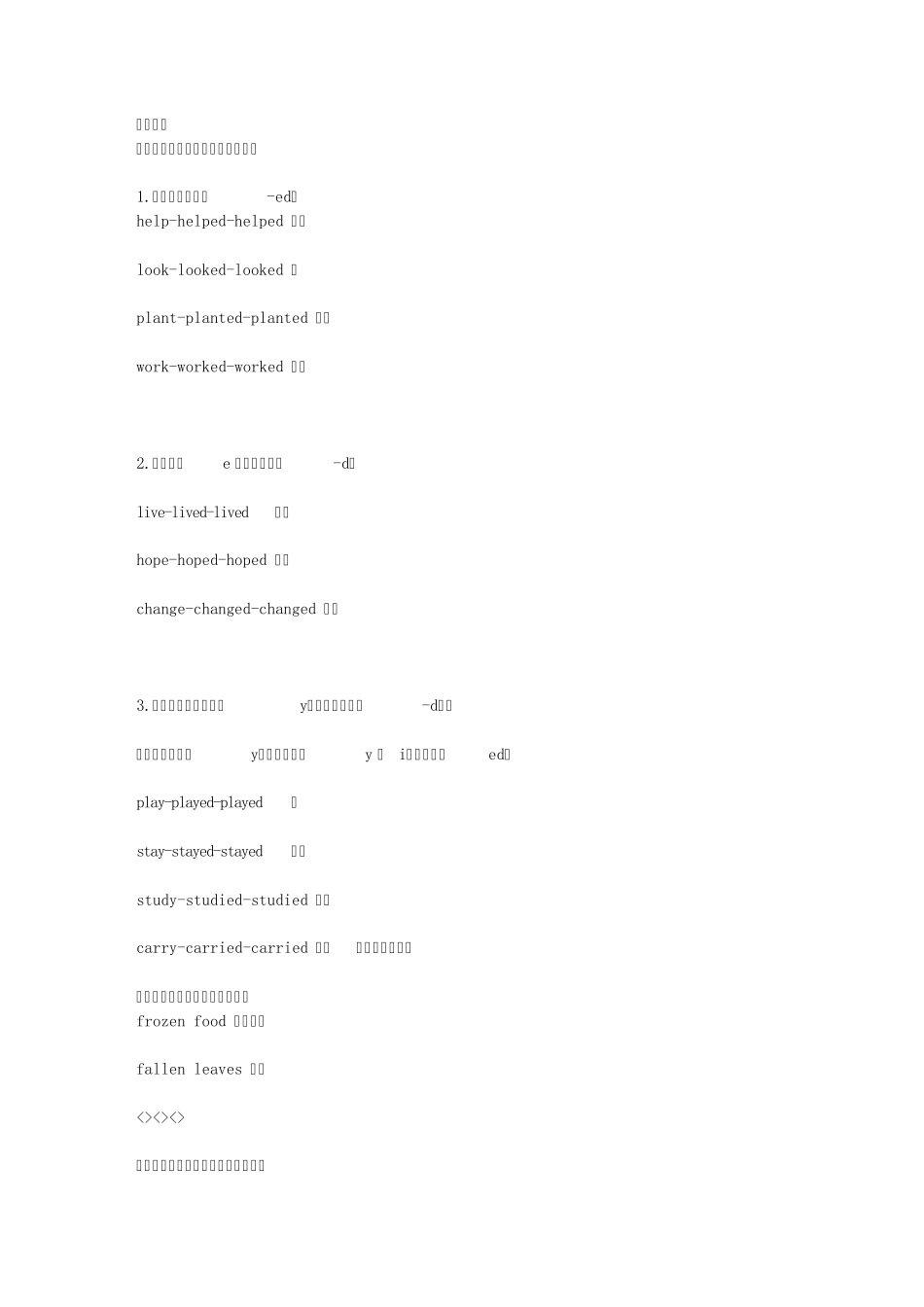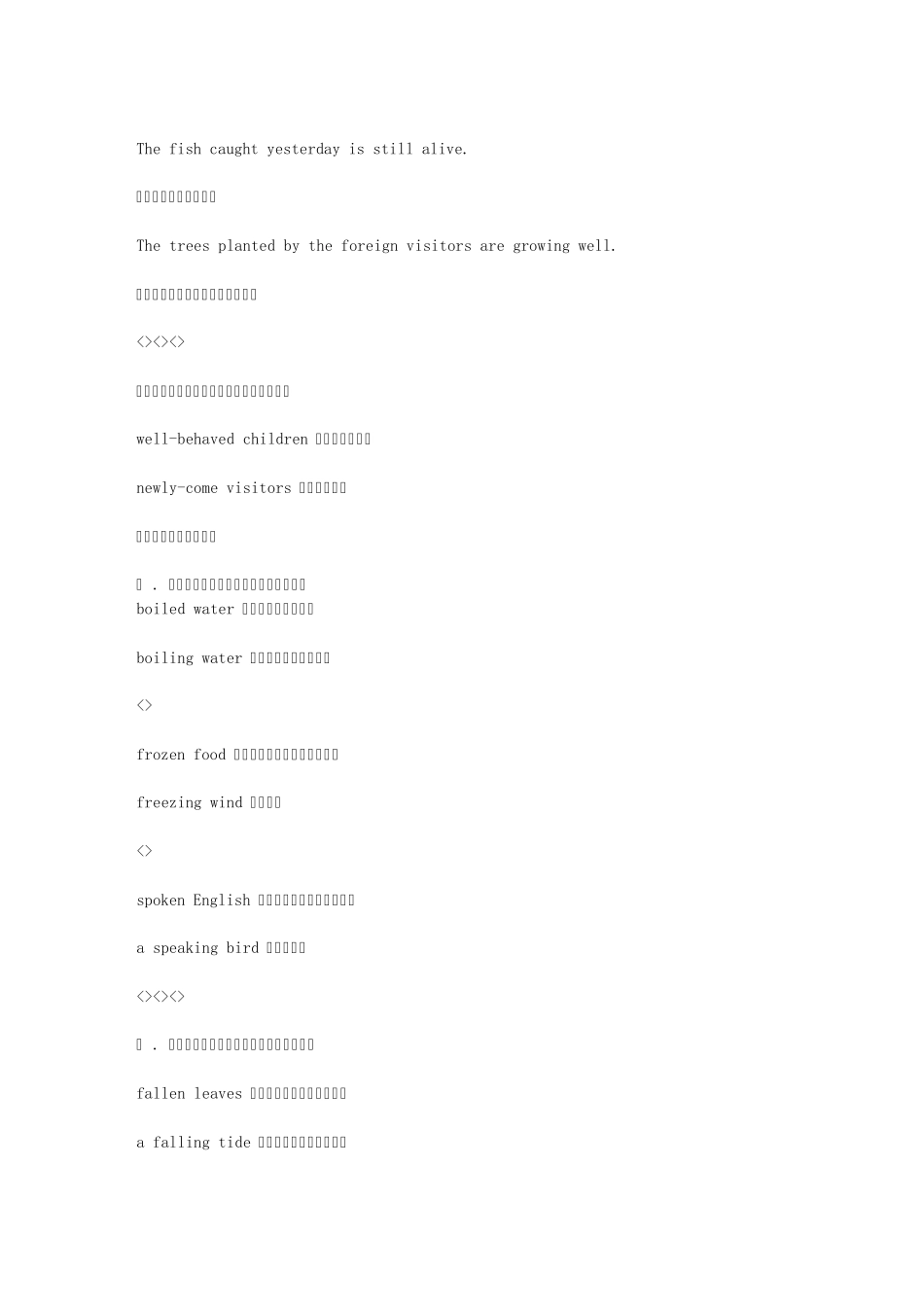like to do sth 和 like doing sth 的区别 用法讲解,非常详细: like doing 和 like to do 都表示"喜欢做某事", 但是 1,like doing sth 表示长时间的喜欢做某事,指兴趣爱好。在意义上比较一般和抽象,时间观念不强,不指某一次动作; 例: I like watching TV . 我喜欢看电视。 Do you like singing ? 你喜欢唱歌吗? She likes swimming.她喜欢游泳。(经常性的,爱好) I like eating fish .(我喜欢吃鱼,个人口味而已,一种爱好,喜欢) 2,like to do sth 则常指某个具体的动作,表示偶尔一次喜欢做某事、或者突然喜欢干某事。 like to do sth 想去做某事(表示有个趋向性,好像是要到某处去做某事) 如 : She likes to swim this afternoon.她今天下午想游泳。(特指某一次的动作) 另外,在搭配(使用方法)上 , “ like to do ”一般与 “ would ” 搭配表示意愿。 例: I would like to swim with you . 我愿意和你去游泳。 Would you like to skate ? 你愿意去滑冰吗? 一般情况下,不定式作定语,意思含有将来, 过去分词作定语,与主语的关系为被动, 现在分词作定语,与主语的关系为主动。 playing beach volleyball 是现在分词作定语 修饰名词 a group of people 现在分词不是谓语动词,而是非谓语动词,所以没有时态。 只有谓语动词才有时态。 但现在分词表示动作的时间:正在进行的动作。 句子的意思是:看那些正在玩排球的人们。 另外,可以作定语的非谓语动词还有:过去分词(表示动作已经完成),不定式(表示动作将要进行) 动词的过去式和过去分词(规则) 1.一般在词尾加“-ed” help-helped-helped 帮助 look-looked-looked 看 plant-planted-planted 种植 work-worked-worked 工作 2.以不发音e 结尾的词加“-d” live-lived-lived 居住 hope-hoped-hoped 希望 change-changed-changed 变化 3.名词以“元音字母+y”结尾时,加“-d”; 以“辅音字母+y”结尾时,变 y 为 i,再加“-ed” play-played-played 玩 stay-stayed-stayed 逗留 study-studied-studied 学习 carry-carried-carried 运送 过去分词作定语 过去分词可以作名词的前置定语 frozen food 冷冻食品 fallen leaves 落叶 <><><> 过去分词短语可以作名词的后置定语 The fish caught yesterday is sti...


